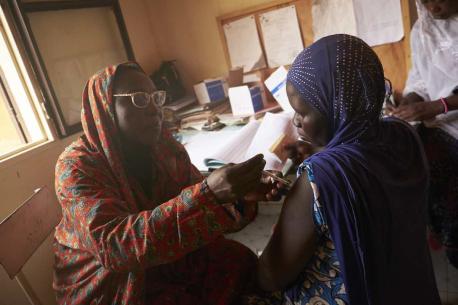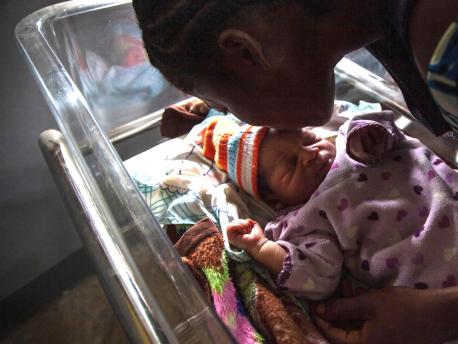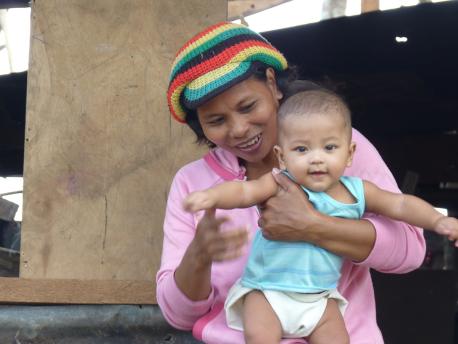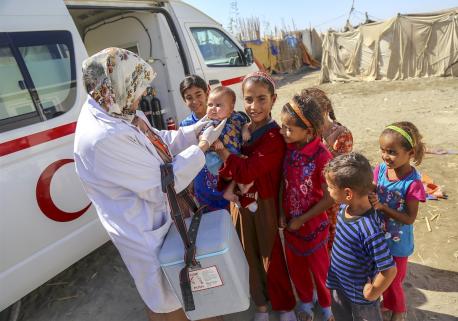
The Frontline Worker Who Helped Guide Niger to MNT Elimination
Niger celebrates a huge milestone in the global fight against an excruciating killer of mothers and newborns. This is the story of Aichatou, a health worker who helped make this victory possible.
In 2010, Kiwanis International and UNICEF joined forces to eliminate maternal and neonatal tetanus (MNT) worldwide. This historic initiative, called The Eliminate Project, is protecting the lives of babies and mothers all over the globe and aims to put an end to a cruel, centuries-old disease.
Aichatou: "I like to treat a person who is ill."
Aichatou, 40, is a community health worker in the village of Koulou Koira. The village is only 10 miles from Niger's capital, Niamey, in the green southwest corner of this vast, largely arid Sahara country. Grey and brown one-story buildings, built of stone and mud, dot the flat landscape unevenly, and a worn dirt path serves as a road. Like much of rural Niger, Koulou Koira lacks extensive health care facilities. Aichatou, in her tiny health facility, has come to serve as the hospital for the immediate area.
She seems to know everyone in every household. As a baseline for her work, Aichatou surveyed all the women of reproductive age in Koulou Koira and scheduled three home visits for every pregnant woman. These visits, she says, "allow us to do pre- and post-natal consultations."
Aichatou's records also allow her to keep track of the women and newborns who can benefit from birth and childcare services at the health facility. "I like to treat a person who is ill, to get them back to health," she says with a smile.


